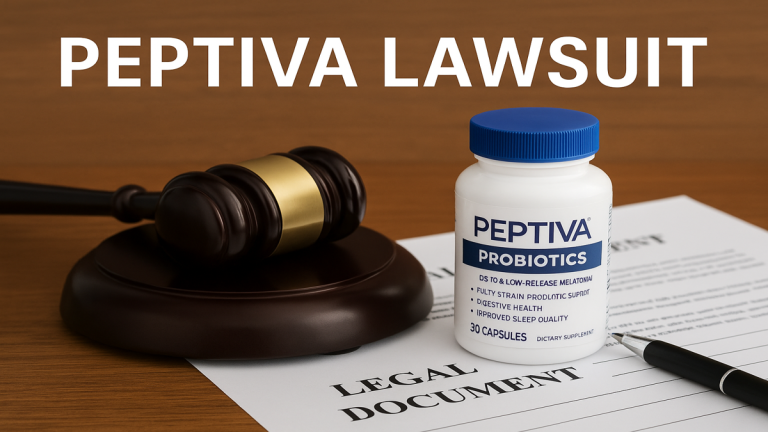This is the state of affairs, for 2025, if you are using Life360 or Tile. One Life360 lawsuit regarding the sale of your data was resolved in 2023, while a different Tile tracker lawsuit — in which Tile, Life360, and Amazon were named defendants — is currently on hold following an August 2025 ruling. Texas sued Allstate and then Arity, stating that its apps, such as Life360, were far-reaching uses of technology, which stoked rumours of a potential Life360 class action based on those statements, which does not exist today under that theory. This guide will keep the scope practical by focusing on what courts and regulators actually did, which security incidents matter, and how relevant academic and political research informs your day-to-day safety.
Key takeaways at a glance
- A 2023 data-sales class action against Life360 ended. The plaintiff dismissed the case with prejudice. No ongoing class case on that exact theory exists today.
(See: Notice of Voluntary Dismissal, Nov 3, 2023 — ClassAction.org listing.) - A separate class action claims Tile trackers enable stalking. Life360 owns Tile, and Amazon is also named. On Aug 6, 2025, the judge dismissed the Ireland-Gordy plaintiffs’ claims as time-barred (filed after the legal deadline). The court kept Broad and Doe as the remaining plaintiffs and stayed their claims (pending arbitration/related issues). The case remains stayed.
(See: Order on Motions to Dismiss — GovInfo, Aug 6, 2025.) - Texas sued Allstate and Arity in 2025 over alleged covert data collection through SDKs, citing apps “such as Life360.” Life360 is not a defendant in that lawsuit.
(See: Texas AG press release, Jan 2025; wire coverage.) - Life360 disclosed a 2024 breach of a Tile customer-support system (personal details, not location histories). A separate API leak exposed ~443k emails and some phone numbers. No certified class or settlement is on record as of Oct 15, 2025.
(See: SecurityWeek/BleepingComputer; Have I Been Pwned listing.) - Researchers in late 2025 reported unencrypted Tile broadcasts and other weaknesses. Those findings may shape future claims and defenses.
(See: WIRED coverage of research, late 2025.)
Life360 and Tile in one minute
Life360 is a family-safety app (location sharing, crash detection, driver reports). The company acquired Tile in 2022; Tile makes Bluetooth tracking tags for keys, wallets, and more. In May 2025, coverage reported deeper integration: users can set up and manage Tiles inside the Life360 app. The standalone Tile app remains available, but new features land in Life360 first.
In Jan 2022, Life360 announced a policy shift: to stop selling precise location data and pivot to aggregated insights (with limited exceptions, as historically discussed).
The cases you hear about most
Here are the two matters most people mix up in headlines—one ended, one is paused.
The data-sales class action that ended in 2023
A case titled E.S. v. Life360, Inc., alleged unlawful sale of location data. The plaintiff filed a voluntary dismissal with prejudice on November 3, 2023, ending the case; no ongoing class claims remain under that caption.
Read the filing: Notice of Voluntary Dismissal (Nov 3, 2023) — ClassAction.org listing.
Context. In January 2022, Life360 stated it would stop selling precise location data and shift toward aggregated outputs. Reporting and investor materials referenced that pivot.
Background reading: The Markup investigations & follow-ups (Dec 2021; Jan 2022).
The stalking class action over Tile trackers
Another case targets Tile’s trackers and related design choices: Ireland-Gordy et al. v. Tile, Inc.; Life360, Inc.; Amazon.com, Inc. Plaintiffs argue Tile ignored known stalking risks, citing missing or weak anti-stalking alerts and features that make hidden tracking harder to detect.
What the court ordered in August 2025
On Aug 6, 2025, Judge Rita F. Lin issued an order on motions to dismiss. The court dismissed the Ireland-Gordy claims as time-barred, kept Broad and Doe as remaining plaintiffs, and then stayed their claims due to overlapping arbitration and appeal issues. Amazon’s dismissal motion as to those stayed claims was denied without prejudice until the stay lifts.
Primary doc: Order on Motions to Dismiss (Aug 6, 2025) — GovInfo.
There is also an appellate docket entry (Jan 2025) reflecting procedural developments in the case, which helps explain the current stay posture.
Docket reference: Ninth Circuit / related entries.
Government action that mentions Life360
In January 2025, the Texas Attorney General sued Allstate and Arity for alleged covert telematics data collection via a mobile SDK (software development kit). The press release cites apps “such as Life360,” but Life360 is not a defendant. Analysts noted the filing under the Texas Data Privacy and Security Act as an early state test case.
Primary doc: Texas AG press release (Jan 2025).
Coverage: Reuters and others.
Early reports also discussed jurisdiction challenges—helpful reminders that venue and corporate structure can shape outcomes independent of merits.
Security incidents that color the legal picture
Security events often drive litigation and regulatory inquiry. Two 2024 disclosures matter here.
The 2024 Tile support-system breach
In June 2024, Life360 reported unauthorized access to a Tile customer-support platform. Reports describe names, addresses, emails, phone numbers, and Tile IDs as affected. Company statements indicated that location histories and credentials were not in that support system. Some outlets noted an extortion attempt tied to the breach.
Coverage: SecurityWeek; additional security outlets.
The separate 2024 API leak
A misconfigured API exposed a dataset later posted online. Have I Been Pwned lists ~443,000 unique emails, often with names and some phone numbers. Tech outlets reported sale attempts and leak timelines. As of Oct 15, 2025, no certified class or settlement is on record linked to this incident.
References: HIBP entry; tech-press coverage.
Why the 2025 research matters
Security researchers in late 2025 scrutinized Tile’s protocols, identifying unencrypted Bluetooth broadcasts and server-side weaknesses. They argue broadcasts can be sniffed for tracking and raise concerns about Anti-Theft Mode (e.g., detectability/accountability). Comparisons note that some rivals rotate identifiers and encrypt more data, lowering stalking risk. These findings may inform pleadings and defenses in the future.
Coverage & analysis: WIRED and academic preprints.
What the Defendants Say
To keep roles clear, here’s the side-by-side framing you’ll see across filings and coverage.
- Plaintiffs’ themes: inadequate safety design, missing/weak alerts, hidden-tracking features, and marketing that downplays risk. The 2025 research (unencrypted/static identifiers; stealth modes) supports portions of this narrative.
- Defendants’ themes (Life360/Tile/Amazon): emphasis on user safety features, cooperation with law enforcement, aggregated data strategies, identity checks and terms for Anti-Theft Mode, and statements clarifying individualized data sharing only at user request.
Example context: The Verge coverage and company statements (links).
Courts will continue to weigh claims under statutes and deadlines. As the Aug 6, 2025 order shows, limitations rules can end claims regardless of technical debates, while arbitration can pause the rest.
How this affects U.S. users today
Use this section as the practical lens: one Life360 data-sales case is over; the Tile case is partly stayed; the Texas action targets Allstate/Arity, not Life360. Treat these as related signals in a market under pressure for privacy, safety, and transparency.
Product changes continue in parallel: Tile setup now lives inside Life360, consolidating features and controls—and centralizing privacy choices in one app. Review those settings closely.
Context: The Verge integration coverage.
Practical steps you can take right now
Privacy hygiene
- Review Life360/Tile settings quarterly; tighten location sharing and alerts.
- Limit background access: set Bluetooth/location to Only when using the app, where practical.
- Use a password manager; enable MFA everywhere possible.
Detection & response
- Use Scan and Secure routinely—before travel, after crowded events, and whenever something feels off.
- Keep apps/firmware up to date; patches often close detection gaps.
- Rotate or retire older tags lacking current safeguards.
Escalation
- Preserve logs, screenshots, Tile IDs/serial numbers, and timelines.
- Contact local law enforcement when danger rises; ask counsel about evidence preservation.
These steps reduce exposure and speed response if abuse occurs.
What to watch next
- Stayed Tile case: monitor the docket for any changes to the stay and arbitration outcomes that could reactivate claims. (Order: Aug 6, 2025 — GovInfo.)
- Regulatory enforcement: states are testing new privacy laws (Texas moved first); others may follow, and federal action remains possible.
- Security updates from Life360/Tile: after 2025 research, look for moves on encryption and identifier rotation.
- Consumer guidance: groups like EFF publish tracker-safety advice that often shapes best practices and policy.
Frequently asked questions
Is there an active class action against Life360 itself?
No certified class is active on “selling precise location” today. E.S. v. Life360 ended Nov 2023 with dismissal with prejudice. Other matters reference Life360 via Tile ownership or ecosystem ties.
What is the current status of the Tile stalking case?
Ireland-Gordy claims dismissed as time-barred; Broad and Doe claims stayed pending arbitration/related issues. Amazon’s motion as to those stayed claims was denied without prejudice.
Did Texas sue Life360?
No. Texas sued Allstate and Arity (Jan 2025). The press release mentions apps “such as Life360,” but Life360 is not a defendant.
Did Life360 stop selling precise location data?
Yes—per Jan 2022 statements, shifting to aggregated insights (with limited exceptions historically discussed).
What do 2025 researchers say about Tile’s security?
They report unencrypted broadcasts and protocol issues that can enable tracking, and raise concerns about Anti-Theft Mode detectability and accountability.
Methodology, sources & disclosures
Methodology. Reviewed federal docket entries and orders (N.D. Cal.), the Texas AG press release, 2024 security incident coverage, HIBP records, major-outlet reporting on the Life360/Tile integration, and late-2025 research coverage. Legal outcomes can change; check the docket for the latest.
Disclosure. No affiliation or compensation from Life360, Tile, Amazon, Allstate, or Arity. This article contains general information only. It’s not legal advice. For legal questions about your situation, consult a qualified attorney in your state.




